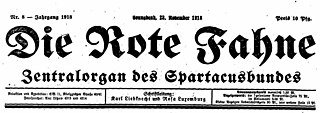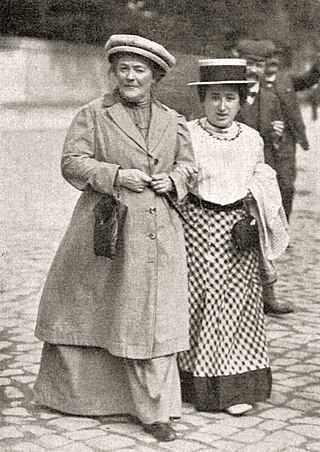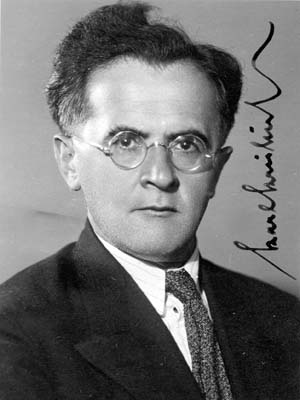Related Research Articles

The Young Communist League of Germany was a political youth organization in Germany.

The Communist Party of Luxembourg is a communist party in Luxembourg. Ali Ruckert is the current chairman of the party.

The Communist Workers' Party of Germany was an anti-parliamentarian and left communist party that was active in Germany during the time of the Weimar Republic. It was founded in April 1920 in Heidelberg as a split from the Communist Party of Germany (KPD). Originally the party remained a "sympathising member of Communist International." In 1922 the KAPD split into two factions, both of whom kept the name but are referred to as the KAPD Essen Faction and the KAPD Berlin Faction.
The Communist Party of Belgium was a political party in Belgium from 1921 to 1989. The youth wing of KPB/PCB was known as the Communist Youth of Belgium. The party published a newspaper known as Le Drapeau Rouge in French and De Roode Vaan in Dutch.
The Communist Workers Organisation was a communist group in the Netherlands. It was founded as the Marxist-Leninist Rotterdam Group (Groep Rotterdam marxistisch-leninistisch in March 1972 by a group of dissidents from the Communist Unity Movement of the Netherlands, following the departure of the 'Proletarian' wing of the KEN in October 1971.
The Communist Party of Germany is an anti-revisionist Marxist-Leninist communist party in Germany. It is one of several parties which claim the KPD name and/or legacy. It was founded in Berlin in 1990. The party is also commonly referred to by the name KPD-Ost to differentiate it from other parties with the same name, most prominently the historical Communist Party of Germany.
Communist Party of Germany is a name that has been and is being used by several Communist organizations in Germany.

The Communist Workers' International or Fourth Communist International was a council communist international. It was founded around the Manifesto of the Fourth Communist International, published by the Communist Workers' Party of Germany (KAPD) in 1921.

Die Rote Fahne was a German newspaper originally founded in 1876 by Socialist Worker's Party leader Wilhelm Hasselmann, and which has been since published on and off, at times underground, by German Socialists and Communists. Karl Liebknecht and Rosa Luxemburg famously published it in 1918 as organ of the Spartacus League.

The Burma Workers Party, until 1958 the Burma Workers and Peasants Party, was a communist party in Burma, formed on 8 December 1950 by leftist elements of the Socialist Party. In December 1962 it merged with the People's Comrade Party to form the United Workers Party. In March 1964, it was among the many parties banned by decree of the Revolutionary Council.

The Communist Workers' Party of the Netherlands was a council communist party in the Netherlands. It was founded in September 1921, and was modelled after the Communist Workers' Party of Germany. It was far smaller than its German counterpart. At most, in late 1921, it had 8 sections with a total membership of around 200. Herman Gorter played an important role in building the party. The party was affiliated to the Communist Workers' International.

Communist Workers' Party of Bulgaria was a council communist party in the Kingdom of Bulgaria. It was founded in September 1921, and was modelled after the Communist Workers' Party of Germany. It was founded at a conference in the city of Slivnu, a centre of the textile industry, from the 7th until the 10th January 1922. The leadership of the party was based in Varna. The party had around 1000 members, and published Rabotchnik Iskra. The party was affiliated to the Communist Workers' International.
The Jewish Social Democratic Party "Poale Zion", later renamed Jewish Socialist Workers Party Poale Zion in German Austria in the fall of 1921 and Jewish Communist Party of Austria, was a political party in Austria. The party published Freie Tribune 1919–1921. The party was part of the international Jewish Communist Union, the left wing of the Labour Zionist Poale Zion movement.
The Alsatian Workers and Peasants Party, initially the Opposition Communist Party of Alsace-Lorraine, was a political party in Alsace-Lorraine. The party was led by Jean-Pierre Mourer and Charles Hueber. The party was founded in late October 1929 and was a member of the International Communist Opposition until it was expelled from that organisation in 1934 and gradually moved towards pro-Nazi positions.

The Communist Women's International was launched as an autonomous offshoot of the Communist International in April 1920 for the purpose of advancing communist ideas among women. The Communist Women's International was intended to play the same role for the international women's movement that the Red Peasant International played for poor agrarians and the Red International of Labor Unions played for the international labor movement.
Kommunistische Montags-Zeitung was a weekly newspaper published by the Greater Berlin District of the Communist Workers Party of Germany 1920–1921. It was published instead of Kommunistische Arbeiter-Zeitung (KAZ) on Mondays. Kunze, who also edited KAZ, edited the newspaper.
Katharine "Ketty" Guttmann was a German communist politician and campaigner for prostitutes' rights.
The Communist Party of Czechoslovakia, Section of the Communist International was a communist party in Czechoslovakia. The party emerged from a split in the German labour movement in the Czechoslovak Republic and functioned parallel to the Czech Marxist left movement for most of 1921. The party represented a more radical position compared to the Czech Marxist left, and fully supported adherence to the Communist International. It eventually merged into the Communist Party of Czechoslovakia.

Karl Kreibich, also known as Karel Kreibich, was a Sudeten German communist politician and author in Czechoslovakia. Kreibich emerged as the main leader of the revolutionary socialist movement amongst German workers in Bohemia after the First World War. He was a leader of the Communist Party of Czechoslovakia and a functionary of the Communist International. During the First Czechoslovak Republic, he was elected to parliament thrice. During the Second World War he was part of the exiled Czechoslovak State Council, based in London. After the war he served as Czechoslovak ambassador to the Soviet Union.
References
- ↑ "Gorter, Die Kommunistische Linke Und Die Gründung Der Kommunistischen Arbeiterinternationale (Kai) | Internationale Kommunistische Strömung". Archived from the original on 2018-03-23. Retrieved 2008-04-26.